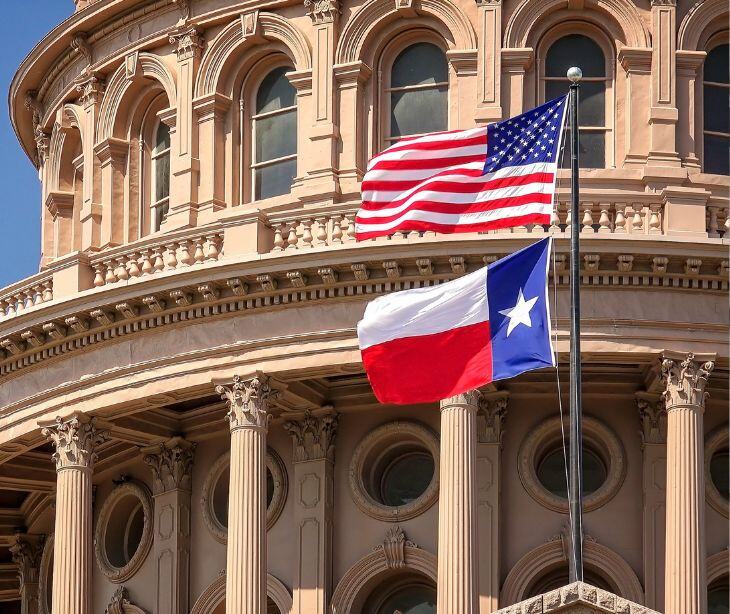3 min read
New Seventh Circuit ruling clarifies Anti-Kickback Statute in marketing
Gugu Ntsele May 9, 2025 8:31:15 AM

On April 14, 2025, the Seventh Circuit overturned a conviction under the Anti-Kickback Statute, signaling a narrower interpretation of what constitutes a “referral” and granting healthcare marketers more room to operate legally.
What happened
The U.S. Court of Appeals for the Seventh Circuit reversed Mark Sorensen’s criminal conviction for paying illegal kickbacks under the federal Anti-Kickback Statute (AKS). Sorensen owned SyMed Inc., a durable medical equipment (DME) company that partnered with marketing firms to advertise orthopedic braces. These firms gathered patient information and routed unsigned prescription forms to doctors for authorization. The government alleged these payments were kickbacks for patient referrals.
The court ruled there was insufficient evidence to show the payments violated AKS, emphasizing that the physicians retained independent judgment and rejected 80% of the marketing company’s orders. The decision shows that marketing efforts that don’t directly influence physician decision-making may fall outside AKS violations.
The backstory
Sorensen was originally convicted in a district court for conspiracy and multiple AKS violations. Prosecutors claimed SyMed’s business model resulted in $87 million in fraudulent Medicare billings and $23.6 million in payments. Sorensen was sentenced to 42 months in prison and ordered to forfeit $1.8 million. His conviction was based on marketing arrangements that allegedly steered Medicare patients to his company, but the appellate court found that physicians—not marketers—ultimately decided whether to prescribe the equipment.
Going deeper
- The marketing firms collected lead information from interested patients online.
- They faxed prefilled, unsigned prescriptions to doctors.
- Physicians independently decided whether to sign and return these forms.
- SyMed paid the DME manufacturer 79% of Medicare reimbursements, which in turn paid marketers based on leads generated.
- The Seventh Circuit said advertisers and manufacturers did not “refer” patients under AKS.
- The court noted the high rejection rate of prefilled forms as evidence of physician autonomy.
- HHS OIG Advisory Opinion 08-19 remains relevant, offering a limited safe harbor for certain “pay-per-lead” models under specific conditions.
What was said
“The other individuals and businesses Sorensen paid were advertisers and a manufacturer. They were neither physicians in a position to refer their patients nor other decision makers in positions to ‘leverage fluid, informal power and influence’ over healthcare decisions,” the court wrote. “The key point is that, on this record, physicians always had ultimate control over their patients’ healthcare choices and applied independent judgment in exercising that control.”
By the numbers
- $87 million: Value of allegedly fraudulent Medicare claims.
- $23.6 million: Total received by SyMed from Medicare.
- $1.8 million: Forfeiture ordered by the district court.
- 80%: Rejection rate of prefilled prescription forms from one marketing firm.
- 42 months: Sorensen’s original prison sentence before the ruling was reversed.
In the know
The Anti-Kickback Statute prohibits offering or receiving anything of value in exchange for patient referrals covered by federal healthcare programs. However, marketing relationships that merely propose services, without exerting pressure or influencing providers, may not qualify as “referrals.” This decision could affect many lead-generation and advertising strategies in the healthcare industry.
Why it matters
This ruling narrows how “referral” is interpreted under AKS, particularly in marketing contexts. It gives healthcare advertisers a legal foothold as long as they don’t influence prescribing decisions. The decision is especially important for digital health marketers, telehealth platforms, and DME providers seeking compliant ways to generate patient interest.
The bottom line
The Seventh Circuit’s decision redefines boundaries under the AKS, emphasizing physician autonomy and limiting the scope of what qualifies as a “referral.” While this provides more flexibility for healthcare marketing strategies, organizations should still tread carefully, ensuring marketing arrangements don’t undermine independent clinical judgment. Future cases in other circuits will determine whether this interpretation gains broader acceptance.
FAQs
Does this ruling apply nationwide?
No, it only directly affects cases within the Seventh Circuit, which includes Illinois, Indiana, and Wisconsin.
What does this mean for future AKS prosecutions?
It raises the bar for prosecutors, who must now prove that payments actually induced referrals or influenced provider decisions.
Are there any safe harbors marketers can rely on now?
Yes, but only narrowly defined ones like those described in HHS OIG Advisory Opinions, which are fact-specific.
Can a similar business model still be risky?
Yes, even with this ruling, marketers and providers could still face scrutiny from regulators or other jurisdictions.
What should healthcare marketers do to stay compliant?
They should consult legal counsel, document physician independence, and avoid tying payments to prescribing outcomes.


%20-%202024-12-19T194915.545.jpg)

